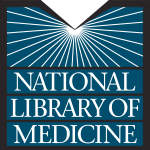- Industry: Library & information science
- Number of terms: 152252
- Number of blossaries: 0
- Company Profile:
The National Library of Medicine (NLM), on the campus of the National Institutes of Health in Bethesda, Maryland, is the world's largest medical library. The Library collects materials and provides information and research services in all areas of biomedicine and health care.
1. Apportionment of a solute between two phases. The term partition or extraction may also be used in this sense where appropriate.
2. Dispersal of a substance and its derivatives throughout the natural environment or throughout an organism.
3. Final location(s) of a substance within an organism after dispersal.
Industry:Biology; Chemistry
1. Area of pathologically altered tissue.
2. Injury or wound.
3. Infected patch of skin.
Industry:Biology; Chemistry
1. Artificially formed lipid droplet, small enough to form a relatively stable suspension in aqueous media, useful in membrane transport studies and in drug delivery.
2. Lipid droplet in the endoplasmic reticulum of a fatty liver.
Industry:Biology; Chemistry
1. Chemical reaction where the initial rate is directly proportional to the concentration of one of the reactants.
2. Any process in which a variable decreases with time at a constant fractional amount.
Industry:Biology; Chemistry
1. Chemical reaction where the initial rate is directly proportional to the concentration of one of the reactants.
2. Any process in which a variable decreases with time at a constant fractional amount.
Industry:Biology; Chemistry
1. Concentration, amount or intensity of a particular physical or chemical agent or environmental agent that reaches the target population, organism, organ, tissue or cell, usually expressed in numerical terms of concentration, duration, and frequency (for chemical agents and micro-organisms) or intensity (for physical agents).
2. Process by which a substance becomes available for absorption by the target population, organism, organ, tissue or cell, by any route.
3. For X- or gamma radiation in air, the sum of the electrical charges of all the ions of one sign produced when all electrons liberated by photons in a suitably small element of volume of air completely stopped, divided by the mass of the air in the volume element.
Industry:Biology; Chemistry
1. Contraction of the phrase “haploid genotype”, the genetic constitution of an individual with respect to one member of a pair of allelic genes: haplotype can refer to only one locus or to an entire genome (a genome-wide haplotype would comprise half of a diploid genome, including one allele from each allelic gene pair).
2. Set of single nucleotide polymorphisms found to be statistically associated on a single chromatid.
Industry:Biology; Chemistry
1. Delay between exposure to a harmful substance and the manifestations of a disease or other adverse effects.
2. Period from disease initiation to disease detection.
Industry:Biology; Chemistry
1. Exposure of a worker’s family to substances carried from the workplace to the home.
2. Exposure of visitors to substances in the workplace.
Industry:Biology; Chemistry
1. Exposure to a substance in a medium or vehicle other than the one originally receiving the substance.
2. Exposure of people to a substance by contact with a person directly exposed.
Industry:Biology; Chemistry
